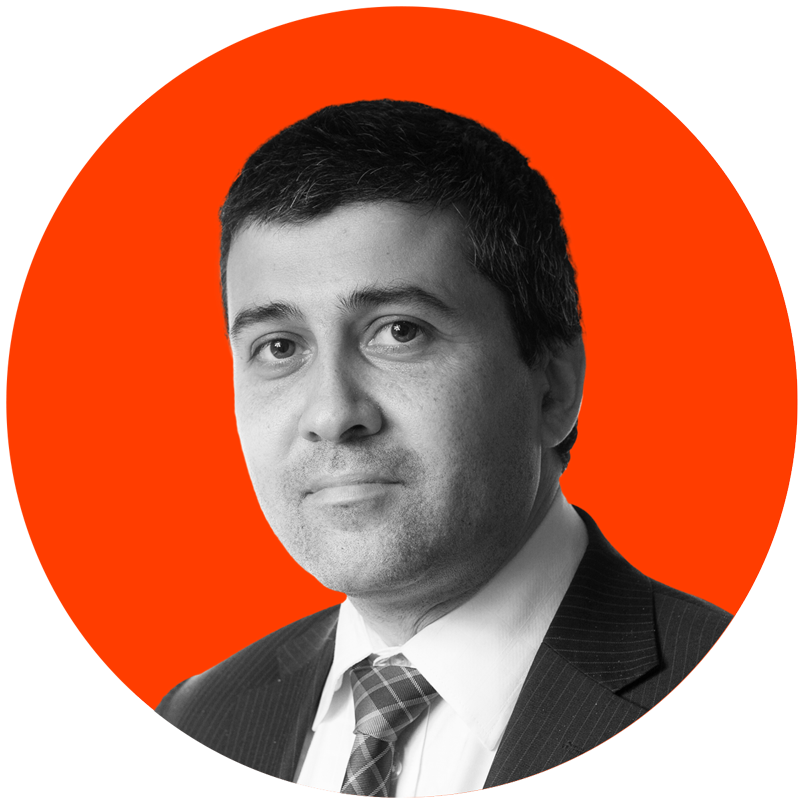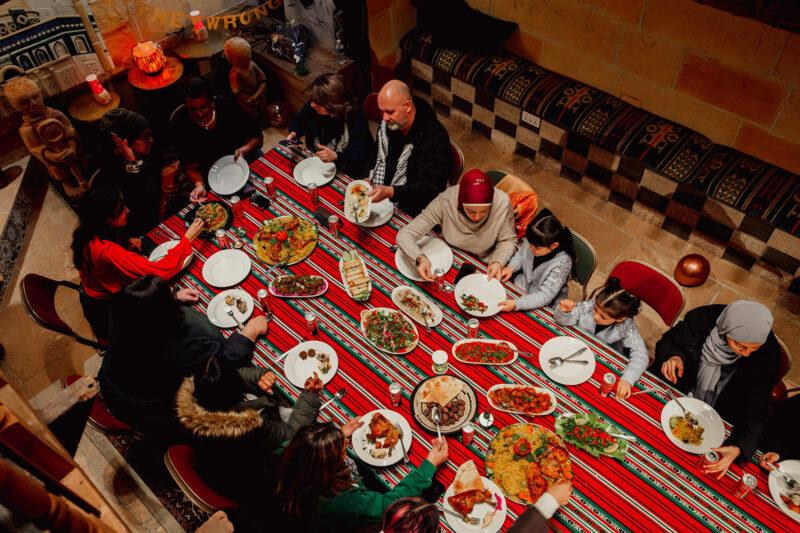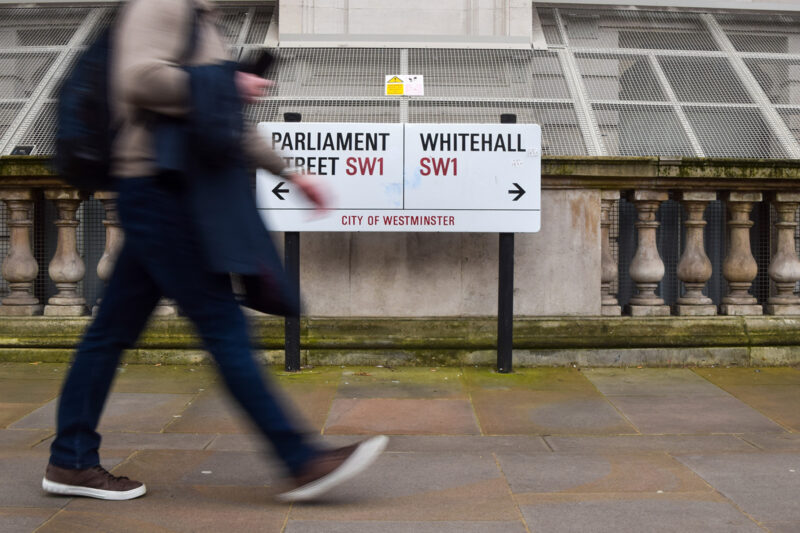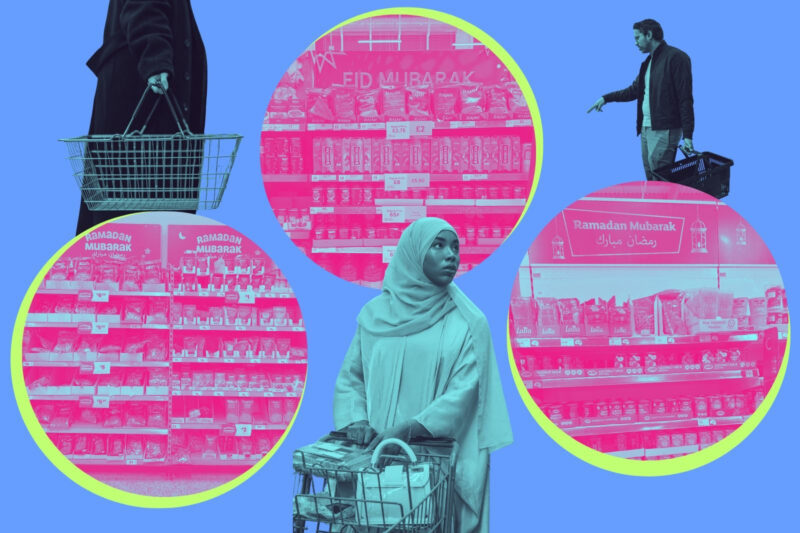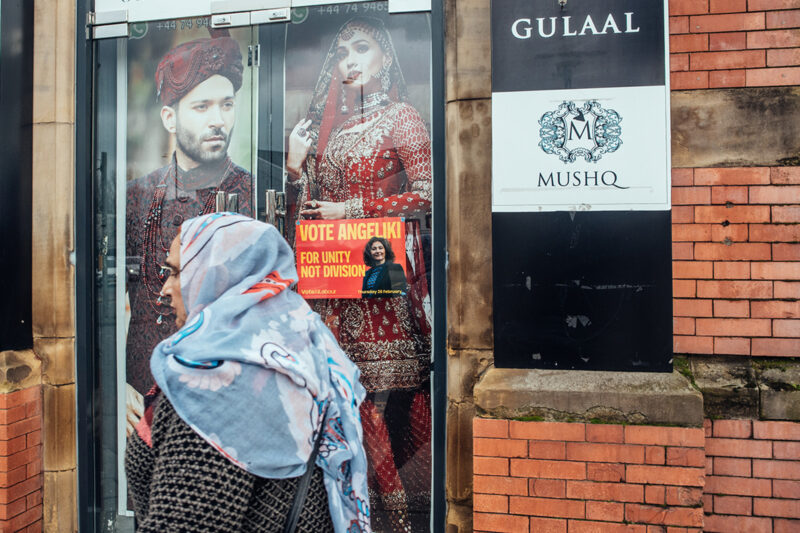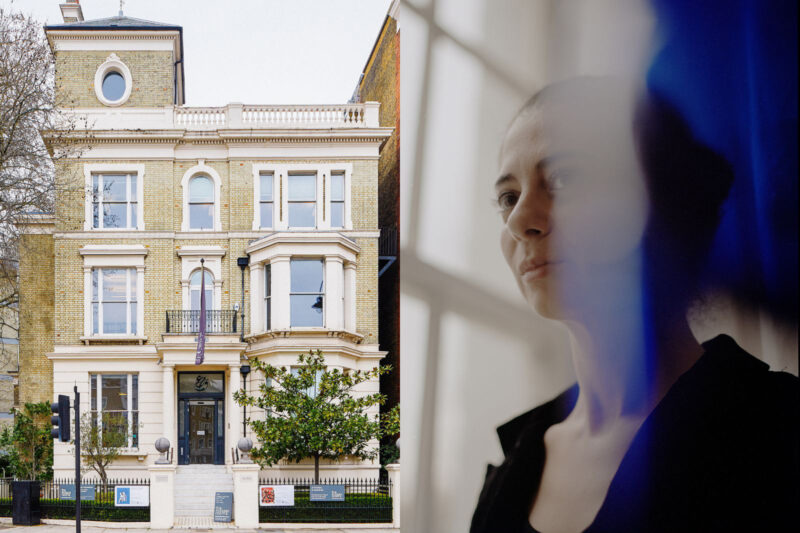A nation of optimistic and confident Muslims
While the glass is half full on economic and social mobility, Islamophobia presents a clear challenge for the UK

What does it feel like to be Muslim in Britain in 2022? “Hopeful” is one of the main messages clearly communicated by Hyphen’s launch poll. This optimism arrives in the face of a number of obstacles, including the economic anxieties felt by everyone as inflation increases the cost of living, and the specific challenges of being part of a religious minority in the UK. Yet, the general consensus among British Muslims is to face those challenges with confidence.
This glass-half-full perspective can be attributed to a number of factors. That 57% believe that the prospects of the next generation will be greater than those of the past reflects how the British-born children — especially those who have achieved success in higher education — of Commonwealth migrants have enjoyed wider professional opportunities than their parents. Stories of the children of bus drivers reaching some of the highest echelons of public life — Health Secretary Sajid Javid and London Mayor Sadiq Khan are just two prominent examples — point to the giant strides made by some individuals from Asian Muslim backgrounds.
Hyphen’s poll also reveals the optimism of youth. As nearly half of British Muslims are under the age of 30, younger voices have more weight in influencing the conversations at community and national levels.
Another somewhat paradoxical contributor to this quiet rise in Muslim confidence deserves analysis. In the decade after the 9/11 and 7/7 attacks, public discussions about integration in Britain seemed invariably to descend into cacophonous debates about perceived Muslim segregation. Nobody would now claim that the big identity arguments in British society have gone away. That much is clear from recent research by King’s College, which highlights a growing concern about “culture war” conflicts following five years of Brexit fallout. But, as we re-evaluate outdated orthodoxies about race, history and monuments to colonialism and slavery in the wake of global Black Lives Matter protests and engage in new arguments over gender, sexuality and trans rights, maybe arguments about the role of Muslims in British society will be less persistent than before?
British Muslims also appear to be somewhat Eurosceptic when it comes to perceptions of the comparative experiences of their co-religionists across the continent. What Muslim women wear was again a major issue in France during the April presidential election contested by Emmanuel Macron and Marine Le Pen. The rancorous and occasionally misinformed debate only served to highlight the limitations of the secularist French state’s banning of ethnic and faith minority data collection — a strategy that has helped inform the mostly successful strategies for inclusion here.
‘The Covid-19 pandemic has introduced the everyday heroism of Muslim NHS workers and volunteers’
The broad confidence of seven out of 10 respondents that there are positive role models for British Muslims may be a new development, reflecting progress in business, culture, politics and sport. Not so long ago, the Muslims handed the loudest media megaphone tended to be unrepresentative fanatics like Anjem Choudary, who were occasionally challenged by former extremists turned counter-extremists like Majid Nawaaz and Ed Husain. It is striking how unusual and long overdue it seemed in 2015 to see someone like Nadiya Hussain — the daughter of a waiter from Bangladesh, a mother and talented cook — earning national treasure status as the winner of The Great British Bake-Off.
British Muslims such as Riz Ahmed, Adil Ray and Noreen Khan are now embedded in the arts, entertainment and acting industries. The Covid-19 pandemic also introduced the everyday heroism of Muslim NHS workers and volunteers such as the film-maker Hassan Akkad, a Syrian refugee.
Yet, for seven out of 10 respondents, a broader confidence in equal opportunities is countered by an all-too-frequent experience of Islamophobic prejudice in the workplace. While this initially sounds like a contradiction, it may suggest that the issue is less now the type of generalised hostility once seen in City trading rooms in the 1980s, or a hangover of the toxic “banter” culture that marred the Yorkshire cricket dressing room for so long. Instead, Islamophobia seems to surface when casual prejudices and clumsy assumptions go unchallenged by UK employers.
These findings represent a clear challenge to the institutions of political, economic and cultural power in Britain: to validate this contingent vote of confidence from British Muslims by showing how increasingly equal opportunities can be delivered and how the stereotypes that frequently stand in the way of people’s aspirations can be tackled and dismantled.
Given the pluralism of Muslim experience in Britain, regional differences are important to highlight. Positive shifts in opportunities for British Muslims across generations and genders were accelerated by rapid progress in London schools in the past two decades. These advances may proceed at a different pace in West Midlands cities, northern former mill towns, or across the increasingly diverse suburbs of the home counties. Those who convert to Islam may have a different trajectory to those born into it, while Hyphen’s poll also suggests that the lives of South Asian and Black Muslims differ in important ways, too.
Both sides of the political aisle can draw their own conclusions from this poll: some by emphasising an optimism that challenges narratives of Muslim victimhood, others by highlighting persistent experiences of prejudice that confound wholly upbeat analyses. However, the fundamental fact is that widespread expectations of equal opportunity and the lived experience that achievement of those outcomes remains a work in progress are equal parts of being British and Muslim today.
 Newsletter
Newsletter

